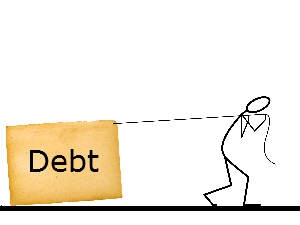The Focus - Our Tax E-Newsletter |
Tax Effects of Debt Restructuring

Unlike simply possessing the "get out of jail free" card in the Monopoly game, getting out of debt tax free is much more complicated.
During the recent recession we have heard numerous reports involving homeowners that are upside down on their mortgage (the outstanding loan balance is more than the value of the home). This has led to an increase in debt restructuring activity, not only on residential mortgages but also on commercial loans, small business loans and even credit card debt.
Most debt restructuring transactions are in the form of debt modifications (reduction) or outright forgiveness of the loan balance, this restructuring of debt can trigger adverse tax consequences. IRS regulations for debt modifications were issued under Sec. 1.1001-3 in 1996.
A modification of a debt instrument may result in a deemed taxable exchange resulting in cancellation of debt income. There is a two step analysis to determine whether a taxable event has occurred.
- Were the terms of the debt modified?
- Was the modification significant?
A "modification" means any alteration of a legal right or obligation of the issuer of the debt instrument. The modification can be within the terms of an existing debt or by the exchanging of one debt instrument for another.
The second test includes five rules for addressing whether the "modification" is significant.
- General Test - facts & circumstances.
- Change in yield - interest rate reduction of 1/4% or greater, or 5% of the annual yield.
- Change in timing of payments - extending the maturity date (beyond 5 years).
- Change in obligor or security - release, substitute or alter a substantial amount of the collateral.
- Changes in the nature of a debt instrument - recourse to non-recourse (and vice versa).
Canceled debt normally results in taxable income, but there are exceptions.
- Under the Mortgage Forgiveness Debt Relief Act of 2007, you may be able to exclude up to $2 million of debt forgiven on your principal residence during tax years 2007 through 2012. You may exclude debt reduced through mortgage restructuring, as well as mortgage debt forgiven in a foreclosure. The debt must have been used to buy, build or substantially improve your principal residence and must also be secured by that residence. Proceeds of refinanced debt used for other purposes – for example, to pay off credit card debt – do not qualify for the exclusion
Debt forgiven on second homes, rental property, business property, credit cards or car loans does not qualify for the tax relief provision. In some cases, however, other tax relief provisions – such as insolvency – may be applicable. IRS Code Sec. 108a provides relief provisions to debt discharge income in bankruptcy and insolvency situations.
- Bankrupt Taxpayers; these are taxpayers with debt discharged under the jurisdiction of a court in a Title 11 case (chapters 7, 11, 12 and 13 bankruptcies).
- Insolvent Taxpayers; these are taxpayers that have liabilities (debt) in excess of the fair market value of their assets. Taxable debt discharge income is excluded to the extent that their liabilities exceed the "FMV" of their assets. Any debt discharge income in excess of the "insolvency calculation" is reportable taxable income.
While bankrupt and insolvent taxpayers can exclude debt discharge income from taxable gross income, they must then reduce certain tax attributes (to the extent possible). This reduction in "tax attributes" may mean that eventually income will be recognized upon the sale of the property due to a reduced tax basis within the property.
The following tax attributes are reduced in debt discharge income situations:
- Net operating losses
- General business credits
- Minimum tax credits
- Capital loss carryovers
- Tax Basis of the property
- Passive Activity Loss & Credit carryovers
- Foreign Tax Credit carryovers
The tax impact of debt forgiveness or cancellation and the rules relating to debt modifications are very complex and depend on your individual facts and circumstances. There is no "get out of debt free" card, so please contact your tax professional at Dermody, Burke & Brown to assist you.
The information reflected in this article was current at the time of publication. This information will not be modified or updated for any subsequent tax law changes, if any.
